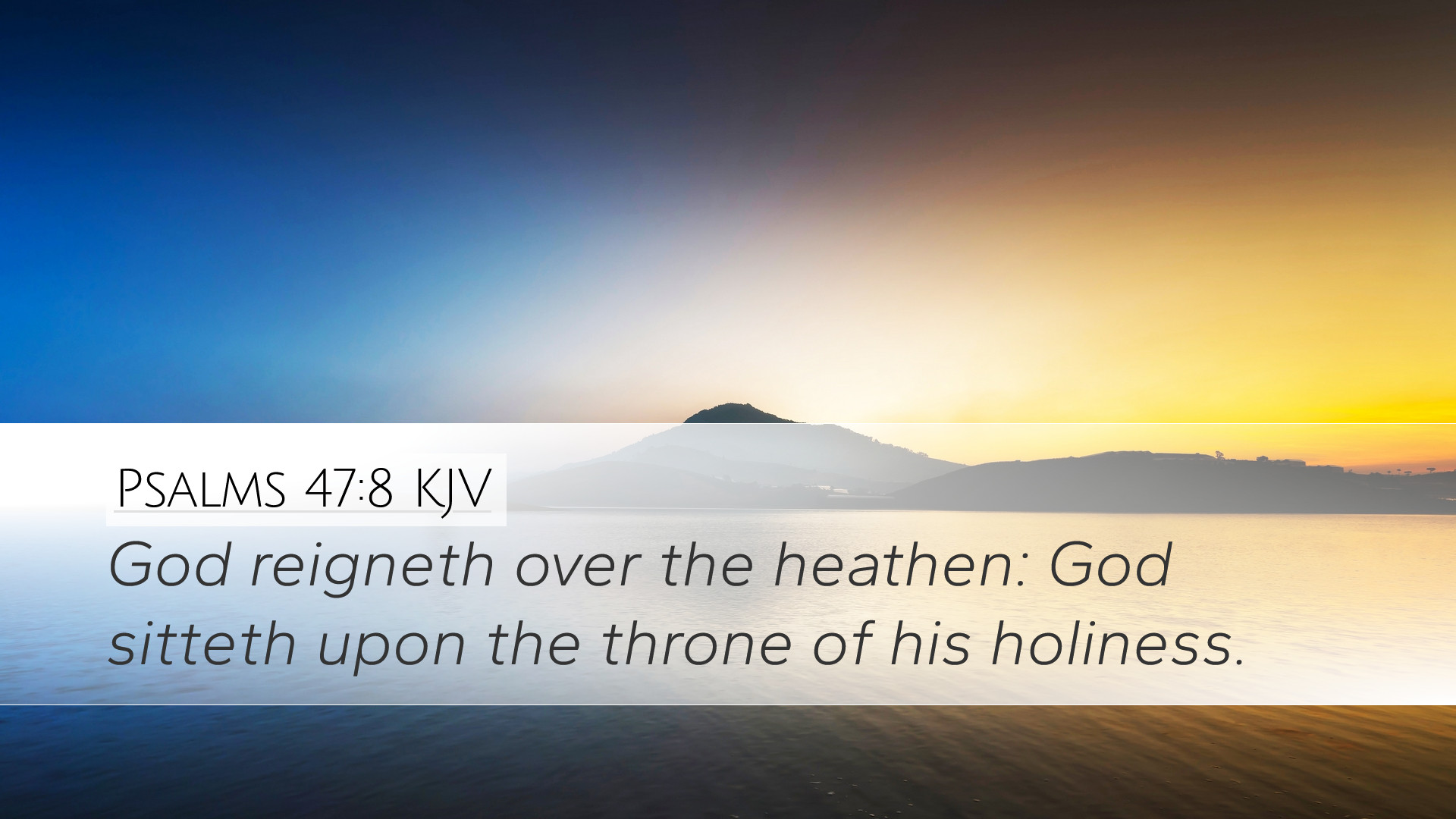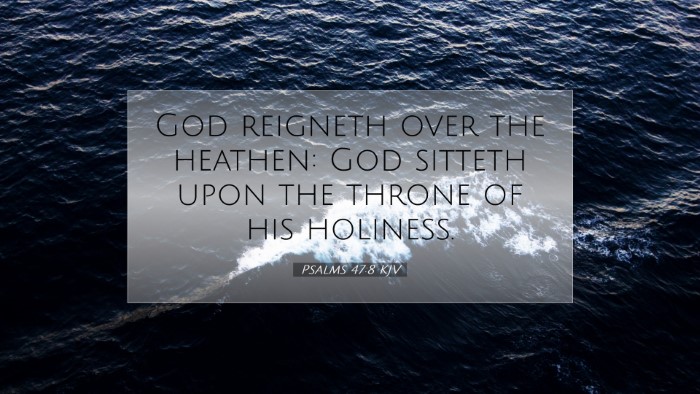Psalms 47:8 Commentary
Bible Verse: "God reigneth over the heathen: God sitteth upon the throne of his holiness." (Psalms 47:8)
Introduction
This verse from Psalms encapsulates a profound truth about the sovereignty of God over all nations and peoples. The concept of God reigning is not merely a theological statement; it is a declaration of His ultimate authority and power. Commentaries by Matthew Henry, Albert Barnes, and Adam Clarke shed light on various aspects of this scripture, making it rich for pastoral teaching, theological reflection, and personal devotion.
God's Sovereignty Over All Nations
Matthew Henry emphasizes the universal reign of God, indicating that His authority extends beyond the boundaries of Israel to encompass all nations ("the heathen"). This perspective is crucial for understanding the global nature of God's kingdom. Henry points out that no nation is beyond the reach of God's power, and His kingdom is established in righteousness.
Albert Barnes further clarifies that the term "heathen" reflects those who do not have a covenant relationship with God but are nonetheless under His sovereignty. Barnes remarks that even those who oppose God are ultimately subjected to His will, illustrating the concept that God orchestrates history according to His divine purpose.
Adam Clarke adds depth by interpreting God's reign as both a present reality and a future hope. He argues that while the world may appear chaotic, God maintains control, assuring believers that His plans will prevail eventually. This duality speaks to the pastoral need for a hope-filled perspective amidst life's uncertainties.
The Divine Throne
The latter part of the verse refers to God 'sitting upon the throne of His holiness.' This imagery is significant in biblical literature, signifying both power and purity.
Matthew Henry suggests that God's 'throne of holiness' speaks to His character. It emphasizes that God's authority is rooted in His moral purity and righteousness. Henry posits that God governs with justice, and His rule is characterized by unwavering holiness, which provides a foundation for His governance.
Albert Barnes explains that the throne of holiness indicates that God's rule is not arbitrary but is based on His holy nature. Barnes asserts that His laws and judgments are a reflection of His holiness, demonstrating that the divine authority is both just and loving.
Adam Clarke interprets this throne as a place of judgment and mercy. According to Clarke, while God’s holiness necessitates judgment against sin, it also allows for mercy towards those who repent. This balance is essential for believers to understand, as it provides a view of God that is far from being a distant ruler but rather a involved and loving Father.
Implications for Believers
The affirmation of God's reign carries significant implications for believers' lives, as highlighted by the aforementioned commentators.
- Confidence in God’s Rule: Knowing that God reigns assures believers that they can trust His sovereignty in all matters, particularly during difficult times.
- Encouragement to Worship: Understanding God's sovereignty and holiness compels believers to worship Him deeply. Worship is not merely an act of reverence but an acknowledgment of His rightful place over creation.
- Moral and Ethical Living: The connection between God's sovereignty and holiness encourages believers to live uprightly. Clarke notes that God’s holiness calls Christians to reflect His character in their lives.
- Eschatological Hope: Clarke's emphasis on future hope reminds believers that while God's reign is present, it will culminate in His ultimate victory over evil at the end of time. This eschatological perspective brings comfort and motivation for evangelism and discipleship.
Conclusion
Psalms 47:8 serves as a powerful reminder of God’s sovereignty, holiness, and ultimate authority over all nations. Through the insights from Matthew Henry, Albert Barnes, and Adam Clarke, we glean rich theological truths and practical applications for our walk of faith. As pastors, students, and scholars reflect on this verse, it encourages an understanding of God that is both profound and practical—one that fosters confidence, encourages worship, and inspires moral living in anticipation of His glorious return.


